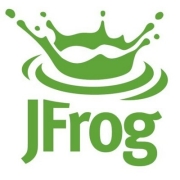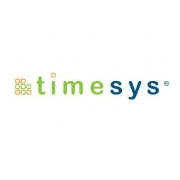Software Supply Chain Security is crucial for protecting the software development pipeline from potential security risks. These solutions focus on securing code integrity and preventing unauthorized access during the development and deployment phases.
As organizations increasingly rely on third-party components in their development processes, Software Supply Chain Security becomes essential. It ensures that all aspects of the software supply chain, including code repositories, build systems, and delivery pipelines, are protected. By implementing robust tools and practices, companies can safeguard their operations from potential vulnerabilities and malicious threats.
What are critical features of this solution?In industries like finance and healthcare, Software Supply Chain Security solutions are essential to protect sensitive data and ensure regulatory compliance. These sectors often integrate advanced security protocols to mitigate risks associated with third-party components and open-source software.
Software Supply Chain Security solutions help organizations protect their software ecosystems from threats and vulnerabilities, ensuring reliable and secure operations.
| Product | Market Share (%) |
|---|---|
| JFrog Xray | 16.3% |
| Mend.io | 12.0% |
| GitHub Dependabot | 8.7% |
| Other | 63.0% |














































Software Supply Chain Security enhances integrity by ensuring that components are tamper-proof and genuine. It minimizes risks by detecting vulnerabilities and mitigating attacks, preventing unauthorized modifications in software components. Implementing strong authentication and access controls protects against cyber threats, offering resilience and compliance with regulations. Automated audits and monitoring streamline the detection of potential issues within the supply chain. Security measures align components with best practices, leading to improved trust and transparency for stakeholders. By protecting intellectual property, it ensures that source code remains confidential and proprietary, reducing potential financial losses and enhancing the organization's competitive advantage.
To mitigate risks in Software Supply Chain Security, you should implement a robust vendor assessment process. This includes thoroughly vetting suppliers, continuously monitoring their security practices, and using automated tools to detect vulnerabilities. Additionally, adopting secure coding practices and using software composition analysis tools can help identify and address potential threats in third-party software components.
What are common Software Supply Chain Security threats?Common threats in Software Supply Chain Security include malicious code insertion, dependency confusion, and insufficiently secured open-source components. These threats often exploit vulnerabilities in software dependencies and third-party integrations. Regularly updating software, using threat intelligence, and conducting vulnerability assessments are crucial steps to protect against these risks.
Why is transparency important in the software supply chain?Transparency in the software supply chain is vital because it builds trust and ensures accountability among stakeholders. Knowing the origins of software components and the practices of your vendors allows you to make informed security decisions. It also helps detect any unauthorized changes to the software, reducing the risk of supply chain attacks.
What role does automation play in Software Supply Chain Security?Automation is a key component of effective Software Supply Chain Security. It helps streamline processes such as code analysis, vulnerability scanning, and threat detection. Automated tools can provide real-time insights and alerts, allowing you to respond quickly to potential threats and minimize their impact on your systems.
How do you ensure compliance in Software Supply Chain Security?Ensuring compliance in Software Supply Chain Security involves regularly updating your security protocols to align with industry standards and regulations. Conduct regular audits and assessments to identify any gaps in compliance. Implementing a comprehensive risk management framework can also ensure that all aspects of the supply chain meet necessary security requirements.